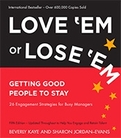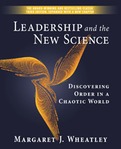BK Blog Post
Five People Who Made the Moral Decision in the Face of Great Danger
 Posted by
Jeevan Sivasubramaniam,
Vice President, Editorial,
Berrett-Koehler Publishers Inc.
Posted by
Jeevan Sivasubramaniam,
Vice President, Editorial,
Berrett-Koehler Publishers Inc.
In their latest book, Sasha and David Chanoff discuss how we can access our moral center and do the right thing even in the midst of chaos or great personal risk.
History is full of examples of people who made ethical decisions in the face of great danger and even at the risk of losing their lives. Here are just five examples of such people:
1. Paul Rusesabagina: While working as a hotel manager at the Hôtel des Mille Collines in Kigali, Rwanda, Rusesabagina hid and protected 1,268 Hutu and Tutsi refugees from the Interahamwe militia during the Rwandan Genocide. None of those refugees were hurt or killed during the attacks. Had the militia discovered what he was doing, he would have most certainly been executed, along with his family members and those he was protecting. Rusesabagina founded the Hotel Rwanda Rusesabagina Foundation to fight for global human rights.
2. Stanislav Petrov: On 26 September 1983, the nuclear early warning system of the Soviet Union twice reported the launch of American Minuteman Intercontinental Ballistic Missiles from bases in the United States. These missile attack warnings were, to Stanislav Yevgrafovich Petrov, an officer of the Soviet Air Defence Forces, most likely false. He broke protocol and opted not to report the alert to his superiors. This decision is seen as having prevented a retaliatory nuclear attack, which would have likely resulted in nuclear war and the deaths of hundreds of millions of people. Investigation of the satellite warning system later confirmed that the system had malfunctioned.
3. Hugh Clowers Thompson, Jr. Thompson was a United States Army Captain who during the My Lai massacre, Thompson and his Hiller OH-23 Raven crew stopped a number of killings by threatening and blocking officers and enlisted soldiers after making the difficult decision to stand against his own troops and side with "the enemy." Additionally, Thompson and his crew saved a number of Vietnamese civilians by personally escorting them away from advancing United States Army ground units and assuring their evacuation by air. Thompson was regarded a traitor by members of the army for many years until the truth of the atrocities committed were brought to light by others.
4. Chiune Sugihara: Sugihara was a Japanese diplomat who served as Vice-Consul for the Empire of Japan in Lithuania. During World War II, he helped 6,000 Jews to leave the country by knowingly issuing transit visas so that they could travel to Japanese territories (on route to safety in another country). This was not just fraudelent behavior but had he been caught, he would have been labeled a traitor to the Axis cause and put to death. The Jews who escaped were refugees from German-occupied Western Poland or Russian-occupied Eastern Poland, as well as residents of Lithuania. In 1985, Israel named him to the Righteous Among the Nations for his actions, the only Japanese national to be so honored.
5. Khanim Latif: Iraqi Kurdistan is not a safe place for women, which is why Latif's work is especially important. Despite the odds, Latif founded Asuda, the first women's advocacy group and shelter in the Kurdistan Region, in 2000. Her goal is to put an end to violence against women, honor killings, and female genital mutilation in her country. Last year alone, Latif and her team provided direct emergency assistance, medical and psychological care, and livelihood support to 5,000 women. Because of her work, latif's life is constantly threatened.






